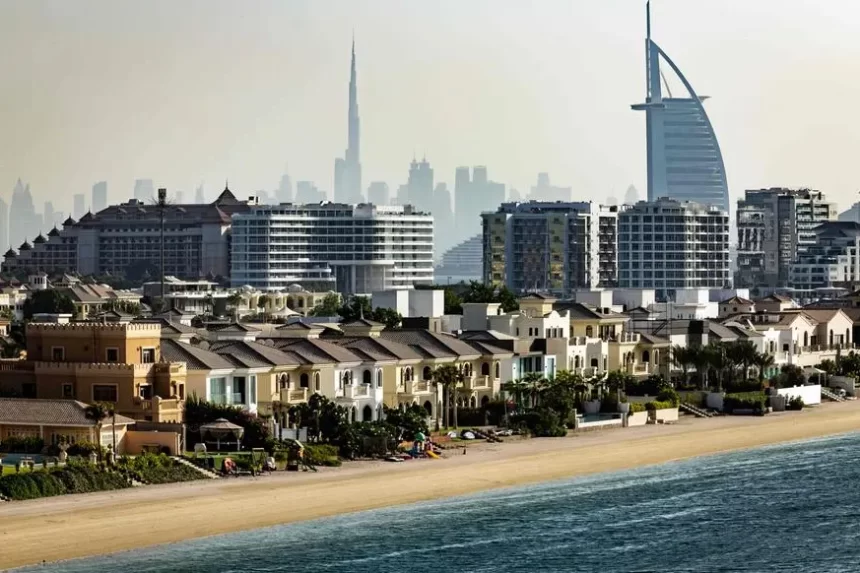After a successful trip by the president of the United States, many may be thinking about what is ahead for the Eau economy in 2025. Well, it is the Eau economy that is still prepared for sustained growth, fueled by a mixture of Beendind Robusta. Official forecasts and global institutions are aligned in the prediction of a healthy expansion. The IMF projects a 3.8% growth in 2024 and 4.0% in 2025, among the highest in the Gulf region. (In comparison, it is forecast that the growth of Saudi Arabia will be around 3% next year) This optimism reflects a strong non -oil activity even as oil production gradually increases.
According to Josh Gilbert, an Etoro market analyst, the oil sectors are playing an increasingly prominent role in the Eau economy. In 2024, industries such as tourism, transport, financial services, construction, real estate and communications were the main growth drivers, highlighting the impulse of diversification of the country.
The international number of visitors and expenses have increased; Travel and tourism are on their way to contributing approximately 13% or EAU GDP in 2025 in the middle of a record tourist expense. Large -scale infrastructure projects, from the expansion of airports and ports to new museums and entertainment places, further boost domestic demand and investment. These efforts are based on the legacy of events such as Expo 2020, which promoted global tourism and visibility. This is also backed by a broad capital of the sovereign wealth funds of the EAU, which continually invest in sectors that range from renewable energy to logistics and technology.
While the Eau’s diversification efforts extend in several sectors, one of the most exciting developments is the emergence of the country as a center for the digital economy and the growth of Fintech. Specific public investments, digital infrastructure and advanced technologies are accelerating growth driven by innovation. In the last month, Donald Trump’s visit to the Middle East stood out in the technological sector that builds infrastructure in the region to support the growth of AI. This included Trump’s support to build the largest AI data center outside the United States, in Abu Dhabi, which seems to establish the EAU as a new center for the growth of AI. This is great news for the growth and actions exposed to AI in the region.
At a time when global trade is in the center of attention with the tariff talk, the Eau’s leg silently strengthens their economic ties worldwide. Its non -oil trade broke records in 2024, with AED 2 billion, a 15% jump compared to the previous year. The new commercial agreements, such as the integral agreements of Economic Association (CEPAS), are opening doors to rapid markets in Asia, Africa and beyond, giving Eau exporters a larger stage. At the same time, the EAU also focus on sustainability. The country is investing strongly in clean energy and green technology, with a bold plan to triple the renewable energy capacity for 2030 as part of its net zero impulse. This is not only helping to address global climatic objectives, but also causes growth in new industries, as well as to create thousands of jobs.
Thanks to the year of diversification, the EAU depend less on oil than in the past, and considerable fiscal tampons (auxiliary for unexpected gains in the good years) provide resistance. EAU have strong prospects until 2025, with a diversified growth engine. But, its main growth engine could be risk, oil prices. After two increases in OPEC+ supplies and the commercial war that is cushioning consumption in the world’s largest importer, China, prices have dropped around 15% this year. An additional fall in oil prices could contain the expense in non -oil economic activity, potentially slowing the growth of diversification in some of the mentioned sectors. However, for investors, the economy offers a convincing mixture of high growth sectors (tourism, technology, infrastructure) backed by prudent economic management.









